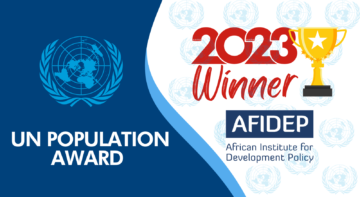News

In a continent with many big problems, the Sahel is the part of sub-Saharan Africa that faces some of the biggest. It includes countries and regions with the most rapid population growth in the world and it is extraordinarily vulnerable to climate change.
Big problems generally have more than one cause. Solutions are only possible when experts from more than one discipline work together. That is what this meeting is all about.
The OASIS conference brings together experts from climatology, demography, environmental and agricultural economics, crop science, family planning, and those who are committed to gender equality and in particular to helping girls and young women. The OASIS conference is also a partnership between faculty and graduate students at UC Berkeley, the Lawrence Berkeley National Laboratory, colleagues in development agencies in North America and Europe and, most important of all, friends and co-workers in the African Institute for Development Policy, and universities in Zaria and Sokoto in northern Nigeria.
Every week somber new reports of the deteriorating situation in the Sahel arrive in the media. The UN Environmental Programme calls feeding the Sahel “mission impossible”. Currently, 12 to 18 million people are hungry. Even so, the true nature of the long term calamity building in this part of the world has not been clearly conceptualized, nor is it widely understood. Huge but slowly moving disasters can be among the most difficult to bring to public attention, even though such mega-catastrophes, taking decades to fully build, have the greatest potential for creating human misery on an almost unimaginable scale with large time horizons.
Universities can take a long-term view. For the hosts of this OASIS meeting signing below, our goal is to contribute to building the evidence-base essential to generating the policies and the financial investment necessary to confront and begin to reverse the threats of hunger, forced migration and conflict hanging over the Sahel. We also know that there is a continuing need to test and evaluate pilot projects designed to ameliorate this crisis and that it is imperative to build additional skills and expertise in academia and in Africa.
Download background document to OASIS meeting here
Download conference schedule here
Related Posts





